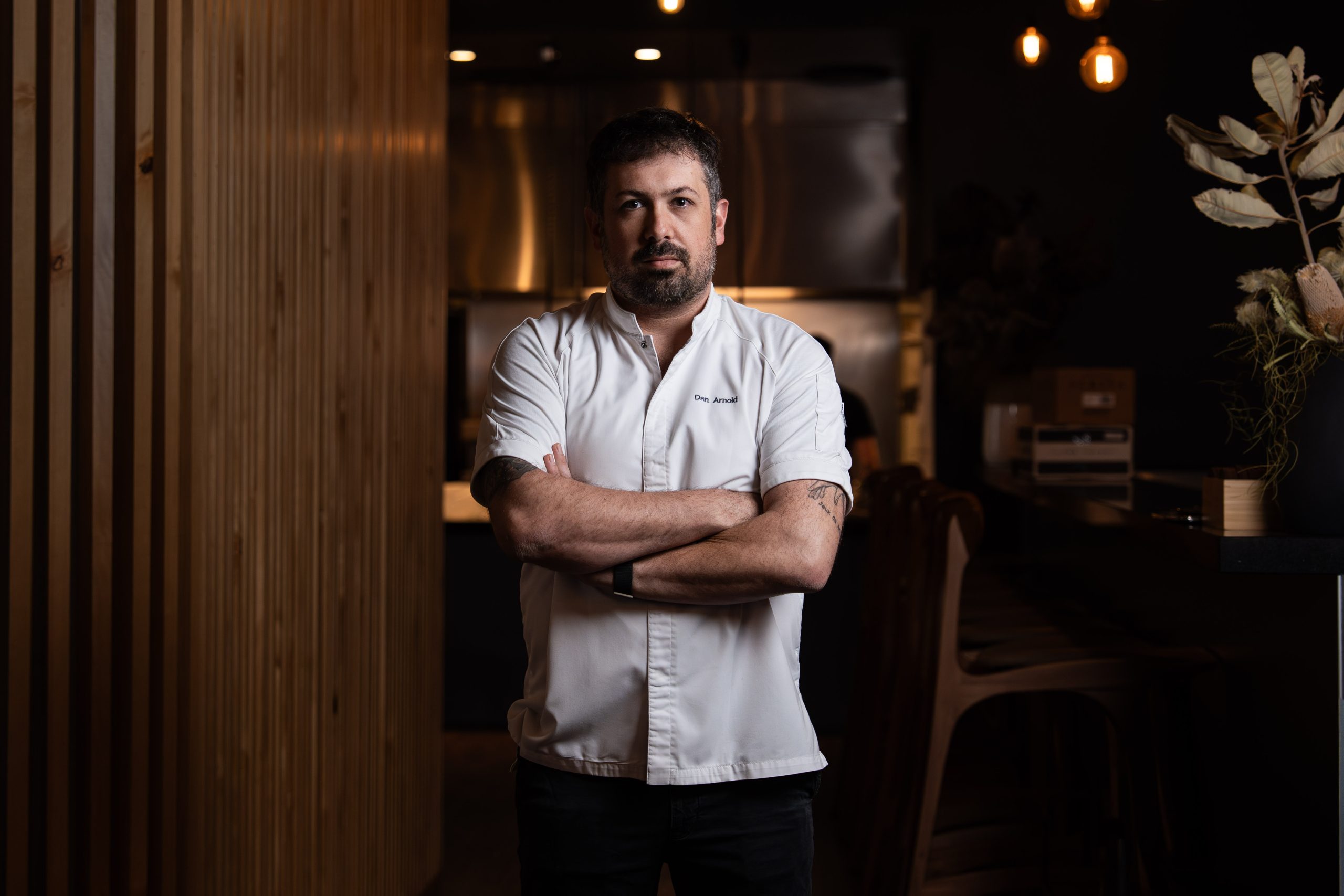A Psychologist Explains How AI and Algorithms Are Changing Our Lives
Behavioural scientist Gerd Gigerenzer has spent decades studying how people make choices. Here’s why he thinks too many of us are now letting AI make the decisions.
In an age of ChatGPT, computer algorithms and artificial intelligence are increasingly embedded in our lives, choosing the content we’re shown online, suggesting the music we hear and answering our questions.
These algorithms may be changing our world and behaviour in ways we don’t fully understand, says psychologist and behavioural scientist Gerd Gigerenzer, the director of the Harding Center for Risk Literacy at the University of Potsdam in Germany. Previously director of the Center for Adaptive Behaviour and Cognition at the Max Planck Institute for Human Development, he has conducted research over decades that has helped shape understanding of how people make choices when faced with uncertainty.
In his latest book, “How to Stay Smart in a Smart World,” Dr. Gigerenzer looks at how algorithms are shaping our future—and why it is important to remember they aren’t human. He spoke with the Journal for The Future of Everything podcast.
The term algorithm is thrown around so much these days. What are we talking about when we talk about algorithms?
It is a huge thing, and therefore it is important to distinguish what we are talking about. One of the insights in my research at the Max Planck Institute is that if you have a situation that is stable and well defined, then complex algorithms such as deep neural networks are certainly better than human performance. Examples are [the games] chess and Go, which are stable. But if you have a problem that is not stable—for instance, you want to predict a virus, like a coronavirus—then keep your hands off complex algorithms. [Dealing with] the uncertainty—that is more how the human mind works, to identify the one or two important cues and ignore the rest. In that type of ill-defined problem, complex algorithms don’t work well. I call this the “stable world principle,” and it helps you as a first clue about what AI can do. It also tells you that, in order to get the most out of AI, we have to make the world more predictable.
So after all these decades of computer science, are algorithms really just still calculators at the end of the day, running more and more complex equations?
What else would they be? A deep neural network has many, many layers, but they are still calculating machines. They can do much more than ever before with the help of video technology. They can paint, they can construct text. But that doesn’t mean that they understand text in the sense humans do.
Does being able to understand how these algorithms are making decisions help people?
Transparency is immensely important, and I believe it should be a human right. If it is transparent, you can actually modify that and start thinking [for] yourself again rather than relying on an algorithm that isn’t better than a bunch of badly paid workers. So we need to understand the situation where human judgment is needed and is actually better. And also we need to pay attention that we aren’t running into a situation where tech companies sell black-box algorithms that determine parts of our lives. It is about everything including your social and your political behaviour, and then people lose control to governments and to tech companies.
You write that “digital technology can easily tilt the scales toward autocratic systems.” Why do you say that? And how is this different from past information technologies?
This kind of danger is a real one. Among all the benefits it has, one of the vices is the propensity for surveillance by governments and tech companies. But people don’t read privacy policies anymore, so they don’t know. And also the privacy policies are set up in a way that you can’t really read them. They are too long and complicated. We need to get control back.
So then how should we be smart about something like this?
Think about a coffee house in your hometown that serves free coffee. Everyone goes there because it is free, and all the other coffee houses get bankrupt. So you have no choice anymore, but at least you get your free coffee and enjoy your conversations with your friends. But on the tables are microphones and on the walls are video cameras that record everything you say, every word, and to whom, and send it off to analyze. The coffee house is full of salespeople who interrupt you all the time to offer you personalised products. That is roughly the situation you are in when you are on Facebook, Instagram or other platforms. [Meta Platforms Inc., the parent company of Facebook and Instagram, declined to comment.] In this coffee house, you aren’t the customer. You are the product. So we want to have a coffee house where we are allowed again to pay [for] ourselves, so that we are the customers.
We’ve seen this whole infrastructure around personalised ads be baked into the infrastructure of the internet. And it seems like it would take some pretty serious interventions to make that go away. If you’re being realistic, where do you think we’re going to be headed in the next decade or so with technology and artificial intelligence and surveillance?
In general, I have more hope that people realise that it isn’t a good idea to give your data and your responsibility for your own decisions to tech companies who use it to make money from advertisers. That can’t be our future. We pay everywhere else with our [own] money, and that is why we are the customers and have the control. There is a true danger that more and more people are sleepwalking into surveillance and just accept everything that is more convenient.
But it sounds so hard, when everything is so convenient, to read privacy policies and do research on these algorithms that are affecting my life. How do I push back against that?
The most convenient thing isn’t to think. And the alternative is start thinking. The most important [technology to be aware of] is a mechanism that psychologists call “intermittent reinforcement.” You get a reinforcement, such as a “Like,” but you never know when you will get it. People keep going back to the platform and checking on their Likes. That has really changed the mentality and made people dependent. I think it is very important for everyone to understand these mechanisms and how one gets dependent. So you can get the control back if you want.
This interview has been condensed and edited.
 Copyright 2020, Dow Jones & Company, Inc. All Rights Reserved Worldwide. LEARN MORE
Copyright 2020, Dow Jones & Company, Inc. All Rights Reserved Worldwide. LEARN MORE
In the lead-up to the country’s biggest dog show, a third-generation handler prepares a gaggle of premier canines vying for the top prize.
Parts for iPhones to cost more owing to surging demand from AI companies.
In the lead-up to the country’s biggest dog show, a third-generation handler prepares a gaggle of premier canines vying for the top prize.
The elite athlete is capable of tremendous discipline. At the moment, though, he’s humping the competition.
Sonny, the star Portuguese water dog, went nosing around for a girlfriend when he was supposed to be attending to press obligations in the Long Island living room of his professional dog-show handler, Kimberly Calvacca.
But there is much work to be done: In just a few days, Calvacca will load the freshly fluffed Sonny and five other crème-de-la-crème canines into a van and head to Manhattan to compete at the country’s biggest dog-sporting event: the Westminster Kennel Club Dog Show.
The pedigreed dogs are the epitome of their breeds, owned by enthusiasts who pay Calvacca $150 per show day for her more than 100 dog shows each year.
The circuit reaches divine heights Tuesday in Madison Square Garden with Westminster’s top award of best in show, a status symbol that has eluded Calvacca, a third-generation dog handler in her 50s who started showing dogs in high school.
Competing alongside Sonny are Valentina, a min pin and the only contender Calvacca partly owns; Tango, a pug; Estee, a canaan; Shindig, a vizsla; and Nala, a rambunctious toller who reacted to getting kicked out of this photo shoot by peeing on the floor.
When it’s showtime, the dogs perform. “It’s a lot of time, a lot of effort and making sure that this dog is raised right so it has the temperament to say, ‘Pick me!’” Calvacca says.
She trains them to stand stock-still when a judge inspects them nose to tail, or trot in a circle without getting distracted by the crowd.
At times, she recreates show conditions at home so her pageant queens and kings won’t be spooked by whatever the competition throws at them.
Most preshow work happens in her “dog room,” a basement utility space where pet scrubs and tinctures abound like makeup at Sephora.
She says the room is filled with the good juju of champions her grandfather groomed there when this was his house.
On her boombox, when Sade’s “Smooth Operator” switches to Britney Spears’s “Toxic,” the frantic synth reflects the chaos.
First, she must wash the dogs one by one in an elevated bathtub. Then she hoists each dog onto a work table, attaching the animal loosely to a loop she cheerfully calls a noose.
She trims their toenails with a repurposed woodworking tool, styles their fur with a $600 dog blow dryer and clips their coats with $1,000 scissors. She cleans their teeth with an electric toothbrush, a dental tool for plaque and a breath-freshener spray.
Each dog spends 15 to 30 minutes daily on treadmills, one of which costs $3,500 and is specifically for dogs.
Then come meals from 40-pound bags of dog food—she’s sponsored by Purina—and various biscuits and canned meats. In the ring, she gives them human treats such as salmon, steak and meatballs.
On a recent day, she heaved a 10-pound bag of frozen chicken from Costco onto her kitchen counter, then boiled breasts with onion powder and garlic powder.
She calls it her “winning chicken,” and during shows she’ll sometimes store a chunk of it between her teeth for quick access.
Calvacca doesn’t play favorites, she says, but she snuggles Valentina and calls Sonny Mister Handsome.
He is the exuberant frat boy, the alpha of the group. He licks, he yodels, he sleeps on a purple pillow. He plays it up in the ring. “Sonny always thinks he wins,” Calvacca says.
On October 2, acclaimed chef Dan Arnold will host an exclusive evening, unveiling a Michelin-inspired menu in a rare masterclass of food, storytelling and flavour.
BMW has unveiled the Neue Klasse in Munich, marking its biggest investment to date and a new era of electrification, digitalisation and sustainable design.






















